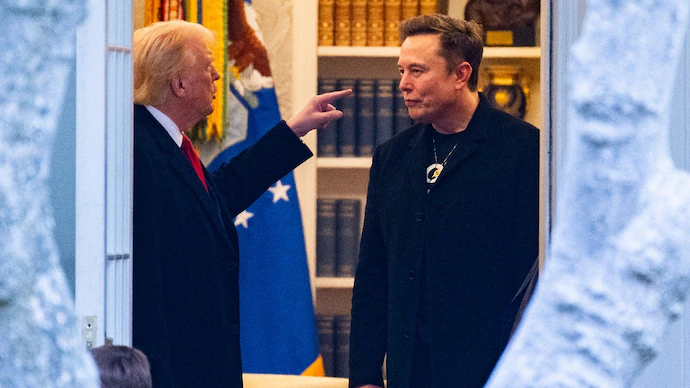In a surprising turn of events on June 5, 2025, an Elon Musk tweet claimed that former President Donald Trump would have lost the 2024 election without Musk’s direct involvement. This bold statement has sent shockwaves through political circles, spotlighting Musk’s financial contributions, social media influence, and the growing role of tech magnates in shaping electoral outcomes. As tensions escalate, the fallout from this Elon Musk tweet continues to impact both Tesla’s market performance and the broader political landscape.
Elon Musk Tweet Dominates Headlines
Elon Musk’s message on his social platform X underscored his belief that his hefty donations and strategic online support were pivotal to Trump’s narrow victory. Musk provided more than $275 million to pro-Trump super PACs, including America PAC and RBG PAC. His funding fueled:
- Nationwide grassroots operations in swing states
- Targeted digital ad campaigns spotlighting key policy achievements
- Coordinated text and phone-banking efforts aimed at undecided voters
Beyond financial backing, Musk’s Elon Musk tweet amplified pro-Trump narratives on X, ensuring that campaign messages reached tens of millions of followers within hours. His followers rapidly engaged with content praising Trump’s economic policies, magnifying its visibility through retweets and replies. This real-time amplification created a momentum shift during critical voting periods.
The timing of the tweet coincided with renewed scrutiny over Musk’s dual roles as Tesla CEO and a political influencer. Since leaving his advisory position at the Department of Government Efficiency (DOGE) last year, Musk’s public endorsements have drawn scrutiny from investors concerned about potential conflicts of interest. Tesla’s stock price, which hovered around $200 per share in early May, dipped to $175 within days of Musk’s tweet, reflecting investor unease over political entanglements.
Analyzing the Elon Musk Tweet Impact
Musk’s claim has prompted fierce debate among political analysts. Critics argue that wealthy individuals like Musk wield disproportionate influence by combining financial contributions with social media power. Supporters counter that Musk simply exercised his free speech rights and backing aligned with his policy preferences, especially regarding minimal regulation and tax incentives for electric vehicles. Key points in this debate include:
- Financial influence: Musk’s $275 million marks one of the largest single-person election investments in U.S. history.
- Media amplification: The Elon Musk tweet garnered over 50 million impressions within 24 hours, according to social media tracking firms.
- Investor confidence: Following the social media storm, Tesla shares lost nearly $30 billion in market capitalization over two trading sessions.
As political pundits dissect Musk’s role, polling data reveals shifting opinions. A MorningPulse survey conducted on June 6 indicated that 42% of registered voters believe tech CEOs should refrain from direct political donations, while 35% see no issue as long as they comply with campaign finance laws. Meanwhile, Tesla brand loyalty faced scrutiny: a quarter of current Tesla owners reported they were “somewhat concerned” about Musk’s political stances affecting product quality or pricing down the line.
While Musk’s supporters praise his willingness to speak frankly about electoral dynamics, detractors accuse him of undermining democratic fairness. Republican strategists who benefited from Musk’s donations remain tight-lipped but privately acknowledge that the resources Musk provided filled key funding gaps in battleground states like Pennsylvania, Michigan, and Georgia.
The Fallout on Tesla and Market Reactions
Tesla’s market capitalization saw a significant dip following the Elon Musk tweet, as investors weighed the risks of Musk’s political involvement against the company’s growth prospects. On June 6, Tesla shares closed 8% lower than the previous session, translating to a $150 billion loss in market value compared to the peak in late May. Contributing factors included:
- Investor concerns over regulatory backlash if Musk’s political stance triggered subpoenas or congressional inquiries into Tesla’s manufacturing practices.
- Public perception shifts, as consumer surveys found that 18% of potential car buyers might choose a competitor due to disagreement with Musk’s political actions.
- Media scrutiny, with financial news outlets questioning whether Musk’s focus on politics detracted from Tesla’s expansion plans in India and South America.
Despite the downturn, Tesla’s long-term outlook remains positive. The company secured contracts this week to supply battery packs for a national grid storage project in California—a deal valued at $2.1 billion. Elon Musk’s supporters argue that short-term volatility does not diminish Tesla’s technological leadership in electric vehicles. Nevertheless, the immediate market response illustrates how an Elon Musk tweet can ripple through investor sentiment and stock valuations.
Navigating the Broader Political Landscape
Musk’s open criticism of Trump’s “Big Beautiful Bill”—legislation that removed electric-vehicle tax credits and projected a $2.5 trillion deficit increase—further strained their alliance. Musk called the bill “a disastrous move that punishes innovation,” while Trump accused Musk of ingratitude for earlier support. This public feud has broader implications:
- Political alliances shift: Other donors are reevaluating their support for candidates perceived as unreliable.
- Campaign strategies evolve: Future campaigns may distance themselves from high-profile tech endorsements to avoid backlash.
- Public trust fractures: Voters question whether billionaire intervention truly reflects grassroots interests or corporate agendas.
As the dust settles, experts predict tighter regulations on campaign finance transparency. A bipartisan bill introduced on June 4 aims to limit individual contributions above $50 million and require real-time disclosure of social media ad spend for political purposes. If passed, this legislation could significantly curb the influence of future Elon Musk tweet–driven campaigns.
Elon Musk’s recent activity makes it clear that modern elections hinge not only on grassroots canvassing or televised debates but also on rapid social media engagement and hefty bankrolls. His actions underscore a new reality: tech moguls now occupy center stage in political discourse, for better or worse.
Join the discussion on Elon Musk tweet and its impact on politics and technology—share your views and stay informed on these unfolding events.
